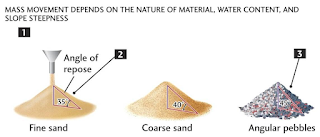9. Hypothesis-testing: & 10. Generalizations and interpretation:
9. Hypothesis-testing:
After
analyzing the data as stated above, the researcher is in a position to test the
hypotheses, if any, he had formulated earlier.
Do
the facts support the hypotheses or they happen to be contrary? This is the
usual question which should be answered while testing hypotheses.
Various tests, such as Chi square test, t-test, F-test, have been
developed by statisticians for the purpose. The hypotheses may be tested
through the use of one or more of such tests, depending upon the nature and
object of research inquiry.
Hypothesis-testing will result in either accepting the hypothesis or in
rejecting it. If the researcher had no hypotheses to start with,
generalizations established on the basis of data may be stated as hypotheses to
be tested by subsequent researches in times to come.
10. Generalizations and interpretation:
If a
hypothesis is tested and upheld several times, it may be possible for the
researcher to arrive at generalization, i.e., to build a theory. As a matter of
fact, the real value of research lies in its ability to arrive at certain
generalizations.
If the researcher had no hypothesis to start with,
he might seek to explain his findings on the basis of some theory. It is known
as interpretation. The process of interpretation may quite often trigger off
new questions which in turn may lead to further researches..jpg)




Comments
Post a Comment